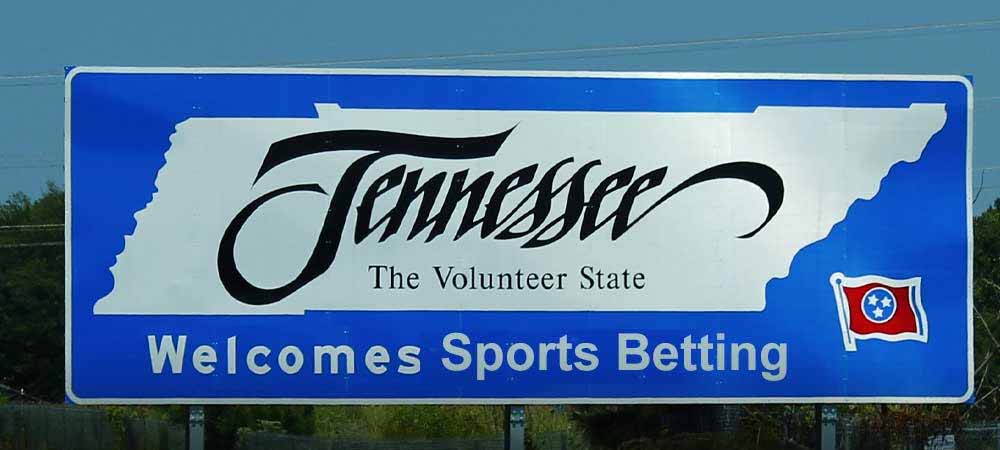- Tennessee held a recent hearing on Tuesday to discuss the regulations of its sports betting market transferring to the Sports Wagering Advisory Committee (SWAC).
- During the hearing, sportsbooks discussed wishing to change the mandatory hold rule set by the legislation of the industry.
- There is a 10% hold rate on an annual basis for sports betting operators in Tennessee.
NASHVILLE, Tenn. – Tennessee’s regulated sports betting market will be run by the Sports Wagering Advisory Committee (SWAC) and a recent hearing on Tuesday discussed the details of this transfer.
One major talking point that gained attention was the discussion surrounding the mandatory hold rule currently in place. Tennessee has a 10% hold rate on all sports wagers made annually.
The hearing discussed making this a quarterly hold instead of annually but regulated sportsbooks discussed removing this rule altogether deeming it anti-consumerist.
Tennessee Mandatory Hold Rate
Multiple representatives from popular sportsbooks spoke out against the mandatory hold rule saying that it does not benefit Tennessee in the way it is intended. Members from BetMGM, Caesars, DraftKings, and Barstool Sportsbooks parent company Penn National were in attendance.
“Penn’s biggest concern with the currently mandated 10% annual hold and proposed quarterly review is that this mandate forces operators to make undesirable business decisions leading to consumer unfairness,” said Josh Pearl, Penn Interactive Director of Sportsbook Operations. “The best chance an operator has to meet the 10% hold mandate is to increase the vigorish, also known as the vig, or decrease the payout on parlays and teasers and other wagers offered.”
Sportsbooks as a whole, argue that the hold rate will indirectly result in sportsbooks being forced to offer odds that are not beneficial to consumers in order to make up for the revenue lost due to the 10% hold.
In addition, should Tennessee not have a mandatory hold rule then sportsbooks can offer more consumer-friendly odds resulting in a larger betting crowd and more tax revenue from the Tennessee sports betting market.
“Over time and absent the rule governing capped payouts, we would expect the Tennessee market to grow while simultaneously the Tennessee hold percentage would more and more resemble Nevada’s,” said Dean Hestermann, Director of issues management and strategic communications at Caesars Sports. “That would be the result of smart consumers making smart bets on engaging products in a robust, competitive marketplace with no official government policy that encourages us, the operators, to offer consumers worse bets with worse odds.”
What Will Come Of The Switch To SWAC?
When the SWAC takes over regulations completely in 2022, the mandatory hold rule could potentially be removed, or set for quarterly review. The rule is still being discussed, so there is no telling which way things will go.
The goal of the SWAC is to have a more dedicated sports betting council as opposed to the current system that has sports gambling regulated by the Tennessee Lottery.
With its own regulated sports betting division, the Tennessee market should run more smoothly once the transition completes next year.
Advertising Disclosure
In order to provide you with the best independent sports betting news and content LegalSportsBetting.com may receive a commission from partners when you make a purchase through a link on our site.
News tags: Barstool | BetMGM | Caesars Sportsbook | DraftKings Sportsbook | Josh Pearl | Nashville | Penn National | Sports Wagering Advisory Committee | Sportsbook | SWAC | Tennessee | Tennessee Lottery

Coming from a background in narrative-based writing, Giovanni strives to write stories that will keep the reader engaged. Although he does pride himself in being accurate, how the story is told is also very important to him. When he’s not keeping readers up to date on sports betting laws and legislation, you can find him writing and recording music, playing videogames, or engaged in heated sports debates with his friends.



 College Football Betting
College Football Betting Best Online Sports Betting
Best Online Sports Betting Best Legal NFL Betting
Best Legal NFL Betting States With Legal Sports Betting
States With Legal Sports Betting Sports Betting Events
Sports Betting Events




